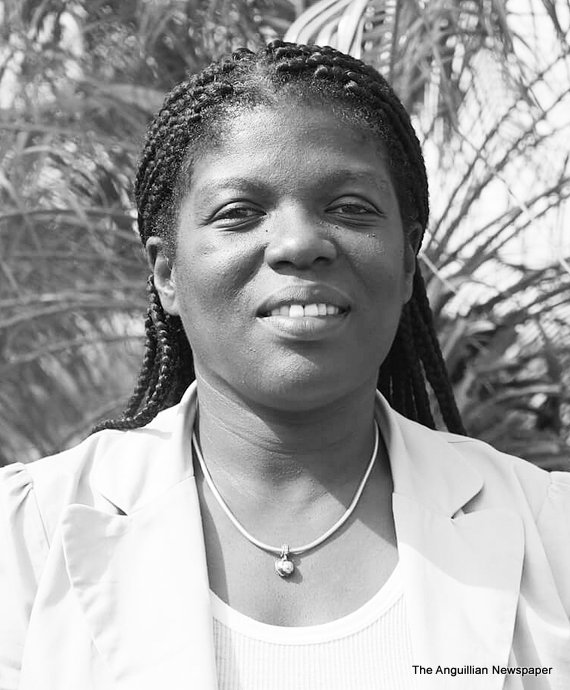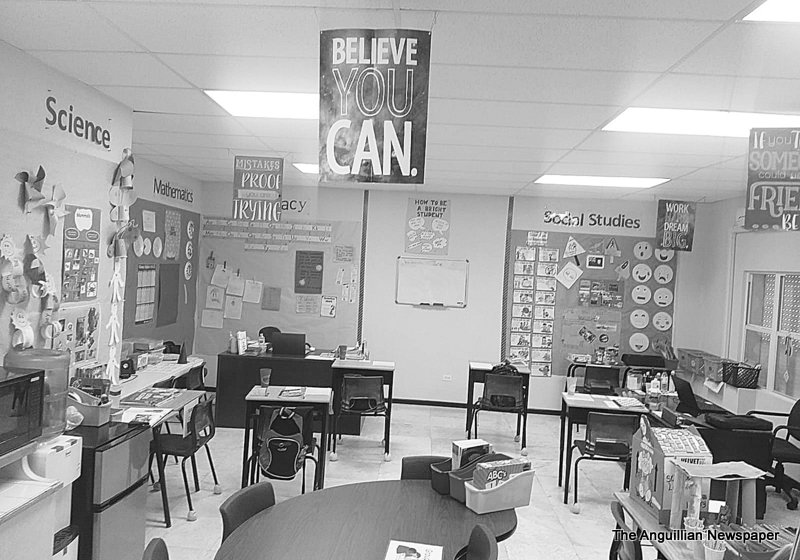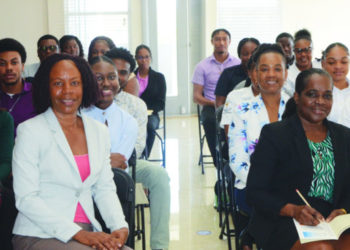
The Education Department in Anguilla is assiduously assisting students with special education needs through its varied support services – and wants the public to know how it is successfully managing.
Chief Education Officer, Mr. Bren Romney, arranged to explain how the system works by utilising the expertise of Mrs. Tracelyn Hamilton, Education Officer, Multi- Professional Support Services, who spoke to The Anguillian newspaper in an interview.
“The support services that we have in our education system are delivered both at primary and secondary level,” she explained. “At primary, we have two sets of reading support systems. One is reading recovery for children in grade one after they had one year of primary education and are struggling with reading. It is a one-on-one support programme where a teacher works with a child for half an hour until he or she completes the specialised programme which lasts up to fourteen to twenty weeks. [The other system is ] when children from grades two to six find themselves struggling – and they are supported by a remedial reading programme which takes into consideration groups of them. A remedial reading teacher may work with small groups of children to help them to gain in any areas in which they are struggling – so that they can go back into their classroom and be able to cope with reading. It is a case where the children are taken out of their classes for thirty to forty-five minutes, given instruction and then sent back.”
Mrs. Hamilton, a former Principal of the Adrian T. Hazell Primary School, continued: “At the secondary level, where some children may not have mastered reading at the primary level, there is a language support system which will be further strengthened. We have already started to train teachers in the system to provide some more intensive support in terms of language, math and humanities, but we want more strengthening in reading. There are cases where some of the children fall back, and this happens where parents tend to step back a little bit more – and it is important that parents continue to support their children.”
On the question about the use of technological systems in the schools, Mrs. Hamilton stated: “We may say that technology is taking over but, at the same time, we need reading books for the children. We are continuing to change our books to suit their needs. We have ordered books, especially for boys, because they like science areas and action. So we have incorporated the likes of the boys to encourage them, and that is very important for me. I have looked at the literacy of boys versus the literacy of girls – and girls develop faster in language, thus sometimes overshadowing the boys. Putting that extra emphasis on what boys like to read, will encourage them to read both fiction and non-fiction texts. But the books are not cheap. In terms of reading recovery, we saw a set of books, which we need, costing over thirty thousand EC dollars.

“We also saw with covid-19 that there is a need for digital books because when you cannot physically have a book to give the children, there are internet sites where we can purchase subscriptions for them to read digitally. We want to combine the digital and the actual physical books for reading. We will also continue to train our teachers – not only those specialised in the teaching of reading – but our other classroom teachers so that they would be better equipped to teach reading. This would mean having more children learning reading strategies in their classroom, rather than having them come out [for remedial or recovering reading support].
“Reading is the key that hinges all other learning, so it is very important that we give the children that key which will help them to unlock all the other doors. When the children read, it translates to their math, science, social studies and every other area if they get a handle on reading early. It is not ever too late to learn to read because I know students who, in their later years, felt that it was something missing and came on very strongly asking: ‘Teacher, teach me how to read’ and they were able to master it. It is not to say all gloom and doom. It doesn’t matter what age you are. If you are willing to learn, and you are open to learning, you can learn to read – and that is what we want. It even goes further than just the school. We have to look for ways and means of empowering other young people out there, as well as to help older persons in our communities who cannot read. It hurts me because I wonder what it looks like to them when they see a newspaper or a sign. We have to empower persons by giving them a reading tool if they want it.”
Mrs. Hamilton’s job in the Education Department is to coordinate all of the support services for both primary and secondary students. According to her, this is not a new undertaking. “Reading recovery started in Anguilla in 1998,” she recalled. “I was one of the first teachers to be trained. Catherine Proctor is the Reading Recovery Tutor who does the training – and is supported by a university in England, but we are now under a US system. Reading recovery has therefore been going on for a long time, and we have supported a lot of children.”
The highly educated and experienced Education Officer added: “We also have a Speech Language Pathologist. She supports the children in all of our primary schools where students have speech or language challenges. In addition, we have our School Counsellors who provide individual group counselling and classroom sessions, and they also support the teachers with meeting the needs of our children.”









